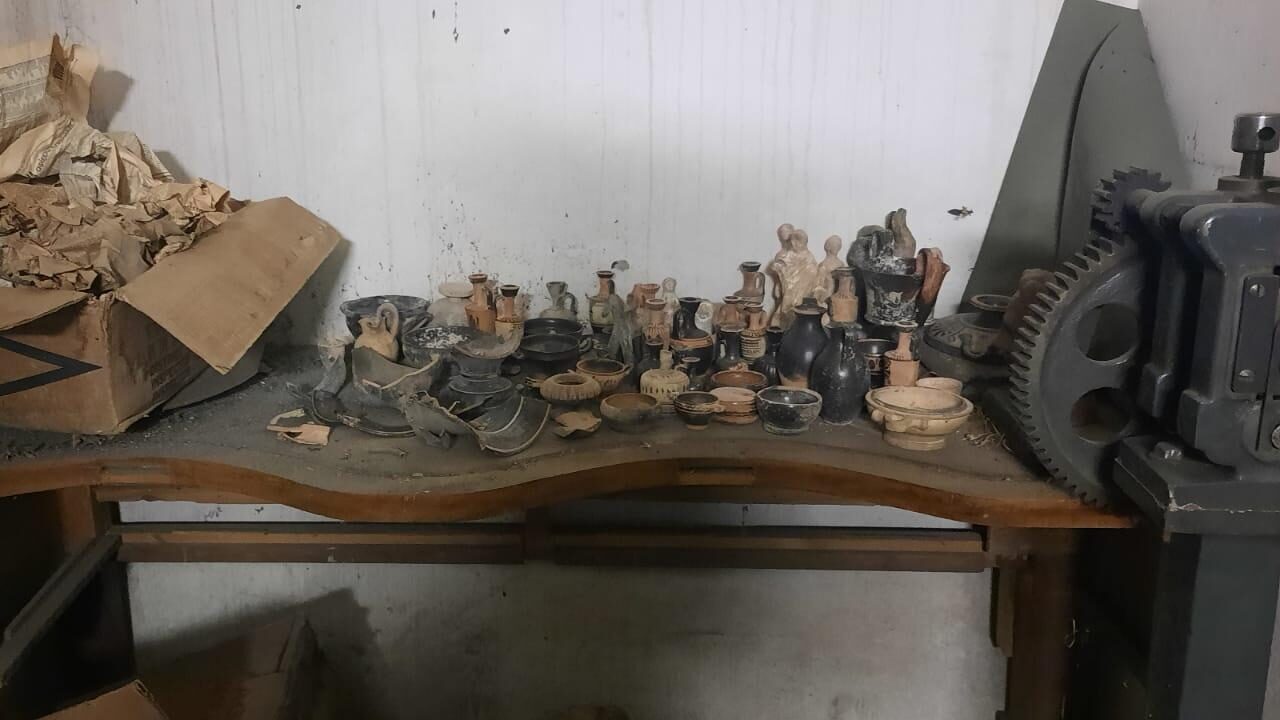Greek authorities have uncovered a significant collection of ancient artifacts, dating from the Geometric period (1100-750 B.C.) to the Hellenistic era (up to 31 B.C.). According to a press release by the Greek Ministry of Culture, the discovery occurred during legal proceedings to vacate a property managed by the Greek National Gallery in downtown Athens.
Archaeologists documented 102 ancient objects including kylixes (drinking cups), kantharoi (two-handled cups), lekane (basins), lekythoi (oil flasks), skyphoi (deep cups), and figurines. In addition, 36 religious items from post-Byzantine times were also cataloged, such as icons, silver coverings, a bishop’s staff, and other ecclesiastical objects. The most striking find was a hoard of 3,247 coins, along with medals, seal stones, weights, and lead seals, spanning periods from antiquity to modern times.
Investigators found nearly the entire collection concealed in a hard-to-access basement, which could only be entered through a trapdoor in the ground floor. Many items were stored in old cardboard boxes, with some wrapped in newspapers that dated back to the 1940s—a time when the property was first leased as a jewelry, watch, and art store.
Regarding the find, Greek Minister of Culture Lina Mendoni, emphasized the Ministry’s ongoing commitment to protecting cultural heritage. She highlighted that, in addition to efforts to repatriate artifacts exported abroad, illegal domestic acquisitions are also addressed – including this find, situated right in the heart of Athens.
Cover Photo Credit: Greek Ministry of Culture
















